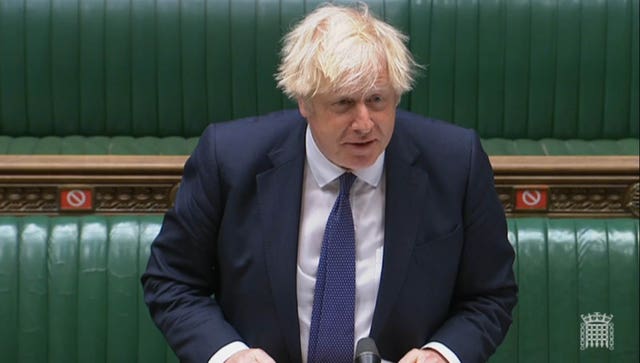Europe’s human rights commissioner has warned that the controversial Police, Crime, Sentencing and Courts Bill could have a “significant impact” on freedom of expression.
The draft legislation is due to go through its remaining stages in the House of Commons today, before going on to the House of Lords. If the bill clears parliament in its current form, it would allow time and noise limits on protests. And those convicted of breaking those limits could face a fine or jail.
The Council of Europe’s human rights commissioner Dunja Mijatovic has written to urge MPs and peers not to approve the bill. She said placing time and noise limits on protests could be seen as trying to “introduce restrictions on peaceful demonstrations”.
A “worrying trend”
In a two-page letter to speakers of both the Commons and the Lords, the commissioner has urged UK MPs not to approve elements of the legislation relating to changes to protests.
Mijatovic took up her post with the 47-nation Council of Europe in 2018. She said that since then, there had been growing attempts to “minimise the possibility of dissent” among member states. The UK remains a member of the council despite exiting the European Union.
In her letter to Sir Lindsay Hoyle and Lord McFall, Mijatovic added:
I have increasingly had to address instances in which Council of Europe member states have tried to introduce restrictions on peaceful demonstrations, often implicitly driven by the desire of governments to minimise the possibility of dissent.
I am seriously concerned that, if the above-mentioned provisions were to be adopted, the UK would add to this worrying trend.
In the light of this, I call on the members of both Houses not to accept provisions of the Bill that would add further restrictions on peaceful demonstrations.
Kill the Bill
Meanwhile, activists have protested across England and Wales, using the slogan “Kill the Bill”. They also warn that the new police powers to shut down demonstrations over noise concerns would curtail the right to protest.

Mijatovic’s letter adds international pressure to existing domestic calls for the government to water down the measures.
Measures must be “proportionate and non-discriminatory”
Mijatovic also raised concerns over the impact the bill could have on Gypsy, Roma and Traveller communities. Echoing a complaint made by MPs and peers on the JCHR, she said the bill’s expanded enforcement measures would allow authorities to ban those communities from returning to land for extended periods. It would also permit the seizure of property, which “may even include the vehicles in which community members live”.
She continued:
While the Government can legitimately pursue actions to prevent public disorder, crime or nuisance, these should be clearly circumscribed, and any measures taken in this respect should be proportionate and non-discriminatory.
I am not convinced that this is the case for the new provisions proposed in the Bill, including in view of their far-reaching consequences, especially as I have been informed that powers to deal with such issues are already available.
From this perspective, the provisions in the Bill, in my view, raise serious questions about their compatibility with the UK’s obligations under international human rights standards.









